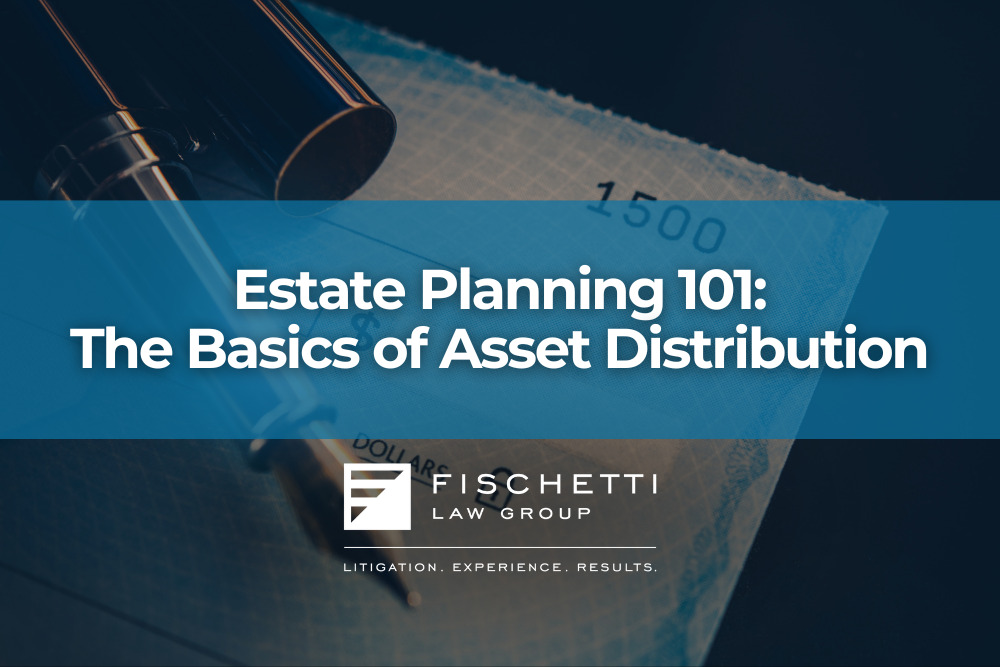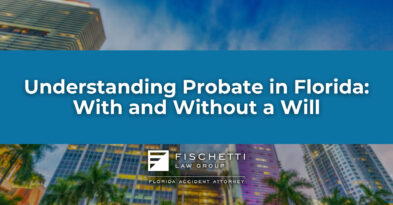Asset Distribution for Estate Planning
Estate Planning 101: Asset Distribution
Estate planning is an important, multi-faceted task that involves making decisions about the distribution of assets, ensuring that your wealth is managed and passed on how you want it to be.
While the process may seem confusing, understanding key principles for asset distribution is essential. In this guide to asset distribution, we’ll provide insights and considerations to help you navigate this critical aspect of estate planning.
What is Asset Distribution?
Asset distribution involves determining how your property, investments, and possessions will be allocated among your heirs or beneficiaries. The goal is to ensure a seamless and fair transfer of wealth, while minimizing tax implications.
To begin, it’s crucial to create a detailed inventory of all your assets. The most common assets include real estate, financial accounts, investments, personal property, and business interests. Creating an inventory of your assets will be helpful once you start to consult an estate planning attorney.
How to Use Your Will and Trust for Asset Distribution?
A last will and testament is a document that outlines your wishes for asset distribution after your passing. It appoints an executor, specifies beneficiaries, and provides instructions for distributing assets.
However, for a more flexible asset distribution plan, many individuals opt for trusts. Living trusts, testamentary trusts, and irrevocable trusts offer vary degrees of control, privacy, and tax benefits.
Working closely with an estate planning attorney can help you determine the best tax structure for your needs.
How Can I Use a Trust to Protect My Assets?
Trusts offer a powerful tool for protecting your assets and ensuring their proper distribution. Irrevocable trusts, for example, can protect assets from creditors and may provide certain tax advantages while also honoring your financial directives. To learn how to designate healthcare directives, read our recent blog.
How Can I Wisely Distribute Assets to my Beneficiaries?
Understanding and considering the dynamics of your family is crucial when deciding how to distribute assets. If you have a blended family, children from previous marriages, or dependents with special needs, a personalized asset distribution plan becomes essential.
Addressing potential conflicts proactively can prevent disputes among heirs and promote family harmony.
Educating and preparing your heirs for the responsibilities that come with inheriting assets is an important part of estate planning.
Proving clear instructions, explaining the purpose behind your decisions, and offering guidance on financial management can empower your heirs to manage their new responsibilities.
If you want to include specific requirements for your heirs to gain access to their inheritance, an estate planning attorney can help you include these in your estate plan.
Distributing Assets Fairly and Equally
Balancing fairness and equality in asset distribution is often a delicate topic. Not all assets are equal in value or importance, and individual circumstances vary.
Communicating openly with your heirs about your intentions and reasoning can foster understanding and mitigate potential conflicts.
Although you know your family best, estate planning attorneys have experience in estate planning with complicated situations. They can give you advice relevant to your situation based on their previous experiences.
Strategies for Minimizing Taxes on your Estate
Tax implications can significantly impact the among of wealth your beneficiaries receive. Estate taxes, inheritance taxes, and capital gains taxes are all factors to consider.
Implementing strategies such as gifting, leveraging the marital deduction, and using the applicable exclusion among can help minimize tax liabilities.
Additionally, charitable giving through trusts or bequests can provide tax advantages while supporting causes dear to your heart.
Navigating the different ways to minimize taxes can be overwhelming. Make sure to consult an experienced estate planning attorney for the best and most current legal advice.
What Happens To My Digital Assets??
In our digital age, the concept of assets extends beyond physical possessions. Digital assets, including online accounts, cryptocurrencies, and intellectual property, also require careful consideration.
Including these assets in your estate plan ensures a smooth transfer of control or ownership, preventing potential complications for your heirs.
Keeping Your Estate Plan Up-To-Date
Life changes, and circumstances change. Regularly reviewing and updating your estate plan is essential to reflect changes in financial status, family structure, and tax laws.
Births, deaths, marriages, divorces, and significant financial events should trigger a review of your asset distribution plan to ensure it remains aligned with your current wishes. Consulting with an estate planning attorney will help you to navigate these life changes while ensuring your estate plan is up to date.
Why You Need an Estate Planning Attorney
Estate planning by yourself can be complicated and easy to get wrong. Seeking a professional estate planning attorney is of utmost importance when it comes to planning the distribution of your assets.
An experienced estate planning attorney can assess your unique situation, provide custom advice, and help you figure out your asset distribution. But keep in mind, while an estate planning attorney can give you a free legal consultation, they cannot offer investment advice.
Estate Planning Law Firm in Boynton Beach
Asset distribution is one of the pillars of estate planning. By understanding the basics of asset distribution, leveraging the right legal tools, and adapting legal strategies to your unique circumstances, you can ensure a seamless and effective transfer of wealth to the next generation.
Planning asset distribution is the one way you can take care of your family financially in your absence. If you own any sort of assets, and plan on accumulating more, you should hire an estate planning attorney.
An estate planning attorney can explain the process, streamline it, and draft the documents you need to make sure your asset distribution is planned according to the law. Don’t leave this important step in your life up to your own DIY or the advice of strangers on the internet. Contact Fischetti Law Group for a free estate planning consultation and get started today.
Click Here to Meet with an Estate Planning Attorney
TESTIMONIALS
What People Say
I waited way too long to get started on my estate plan, but thankfully Fischetti Law Group was able to work with me and make the process easy.
The Fischetti Law Group helped me get my estate planning started. I highly recommend them!











